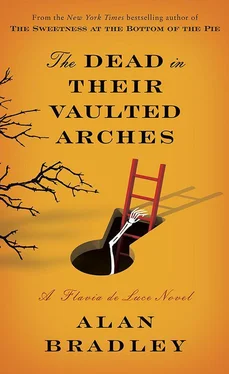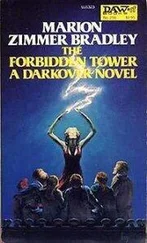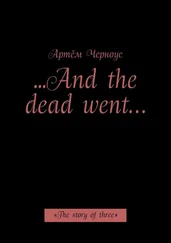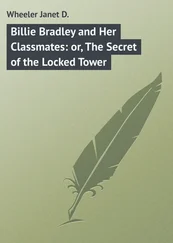“My daughter Flavia,” Father began again. “Flavia has been keeping—”
“Thank you, Colonel de Luce,” Sir Peregrine said. “If we require further assistance, we shall send for you.”
Send for him? Send for Father in his own house? Who do these people think they are?
So gently that I hardly noticed it, Father took my arm and drew me out into the hall. The pathologist followed his colleague into the boudoir and the green baize door swung shut behind them. The key turned with a determined click.
Father and I were alone in the hall.
I think he could see that I was working up a rage, but before I could say a word, he bent down, put his mouth close to my ear, and whispered: “Home Office.”
As if those two words explained everything.
“But why?”
Father put a forefinger to his lips to shush me, then crooked it and wiggled it as a signal for me to follow him.
He opened the door of his bedroom and waved me inside.
It was the first time I had been in Father’s room in a year, but it was precisely as I remembered it: as if, like the British Museum, nothing was ever touched from age to age, but only stared at.
The dark, heavy Gothic bed, the Queen Anne washstand—even the Stanley Gibbons stamp catalog on the table seemed to have been suspended in time.
Father waved me to a chair, and as I settled, he made his way across the room to a window.
Windows, I believe, were as essential to Father’s talking as his tongue.
I waited for him to begin.
“We must do as they tell us,” he said at last.
“But why?” I couldn’t help myself.
And yet, in my heart of hearts, I knew the chilling answer all too well. Sir Peregrine could have been sent here for only one reason.
“The Home Office is in charge now,” Father said. “They have flown your mother home from Tibet, laid on the special train to bring her down to Buckshaw, and tomorrow, they shall take her to St. Tancred’s.”
He did not add the words “after the autopsy,” but he might as well have.
His voice broke a little, but he steeled himself and carried on. I could almost see a pointer in his hand as he briefed me on what was undoubtedly to him a military campaign. A tragic one, to be sure, but a military campaign nevertheless.
His face was white at the window as he said: “At 1400 hours, your mother’s coffin, draped again in the Union Jack, will be brought down to the foyer, where it will rest for ten minutes to allow the household staff to pay their respects.”
Household staff? Could he be referring to Dogger and Mrs. M? Other than the Various Governesses, or “VG” as we called them—who were best not spoken about—there hadn’t been household staff in the real sense of the word since I was a baby.
“At 1415, the hearse, with the first of the floral tributes, will depart Buckshaw and arrive at St. Tancred’s at 1422. The family will—”
Seeing that he was near to tears—or was it me?—I walked softly across the carpet and stood by his side at the window.
“It’s all right, Father,” I said. “I understand.”
Even though I didn’t.
At that moment, I wanted more than anything to tell him about my accidental discovery of Harriet’s will. The fact that it was thought Harriet had died without leaving a will had been at the center of our poverty-stricken existence for as long as I could remember.
On several occasions, kind Fate had seemed to dangle a financial solution under our very noses, only to snatch it away again as ruthlessly as if we were engaged in a rough-and-tumble round of Hook the Hankie.
For instance, there had been the First Quarto of Shakespeare’s Romeo and Juliet which had turned up in the library, but which Father had steadfastly refused to part with, although a certain Big Name on the London stage—oh, all right, it was Desmond Duncan—continued to contrive new ways to get his scheming hands on the precious little volume.
And then there had been the Heart of Lucifer, that priceless diamond which had once ornamented the crozier of Saint Tancred and which had been recovered at the village church just a week ago, during the occasion of the opening of his tomb.
After vanishing for a while as it worked its way through my alimentary canal, the stone had come to light at last, so to speak, and had recently been handed over to the bishop for further investigation by the Ecclesiastical Authorities, who, after consultation with the Garter King of Arms, Somerset House, and the Public Record Office were to make the final decision upon whether or not the five-hundred-year-old Saint Tancred de Luci had been one of our de Luce ancestors, and, hence, whether the stone was ours in law, common or otherwise.
“Don’t hold your breath,” the vicar had advised Father.
The discovery of Harriet’s will, then, would be crucial. But even so, some strange new urge was keeping me silent.
Why couldn’t I just blurt it out and be done with it?
The answer to that simple question was a complex one, and I wasn’t sure I even understood it myself, although my reasoning went something like this: In the first place, I had no right to interrupt Father’s mourning. Good news, it seems to me, has no place in the midst of tragedy, when it cannot be fully appreciated—when it is dampened and diluted by the atmosphere in which it is announced and robbed of its healing power.
“Catharsis cannot possibly come until the bitter end,” Daffy had lectured us as she read aloud from Aristotle.
Then, too, there was the less than admirable fact that I wanted to keep the will’s existence to myself for as long as possible. In some strange way, I needed to feed upon and relish the possession of information that nobody knew but me.
I’m not really proud of that, but it’s true. There is a strange strength in secrets which can never be achieved by spilling one’s guts.
With those thoughts in mind, I slipped my hand into Father’s, and the two of us stood together in silence for what seemed like a comforting eternity.
As we stood there at the window, my father and I, I fell into what Daffy would have called a reverie , and everyone else a brown study .
Images floated dizzily into and out of my mind: Harriet in the ciné film soundlessly forming the words “pheasant sandwiches”; those very same words in the mouth of Mr. Churchill; the horrible gleam of Harriet’s coffin before it was mercifully shrouded by the Union Jack; the tall man at the window of the laboratory; the man (was it the same man?)—or at least his arm—sticking grotesquely out of the steam beneath the wheels of the train; his last words—his message to Father: “The Gamekeeper is in jeopardy.”
Had I done as he had asked? No, I hadn’t. My only excuse was that the time hadn’t been right. Whatever was I waiting for?
If I couldn’t give him good news, I could at least give him bad.
It didn’t make much sense, but there it was.
“Father,” I blurted, “that man at the station—the one who fell under the train—he told me to tell you that the Gamekeeper is in jeopardy. He also said something about the Nide, but I’m afraid I missed it.”
Father was galvanized. The muscles of his face twitched as if he were wired up to an array of chemical batteries in some fiendish laboratory experiment.
His eyes came slowly and jerkily around to focus on my face. “Man? Station? Train?”
Could he have been so distracted by grief , I wondered, that he didn’t see or hear the accident?
Or was it murder? Hadn’t someone said that the stranger was pushed?
“This man,” Father asked, his face, if possible, even more gray than it had been. “What did he look like?”
Читать дальше












